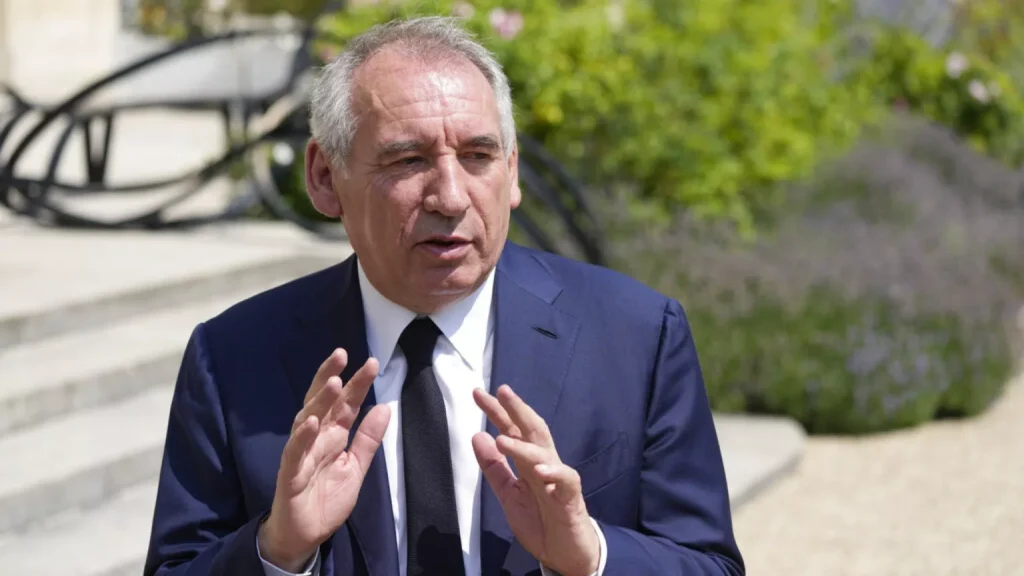ultimateimp – French Prime Minister François Bayrou has strongly condemned the new US-EU trade deal, calling it a “dark day” for Europe. He accused the European Union of giving in to former President Donald Trump’s threats of escalating tariffs. Bayrou expressed his disappointment on social media, saying it was a low point when free nations compromise under pressure.
Read More : Blackpool Boost Squad with New Signing Hansson from Blues
The deal, finalized in Scotland, sets US tariffs on European exports at 15%, including cars—tripling the current 4.8% rate. This move avoids Trump’s threat of 30% punitive tariffs starting August 1, which would have hit EU products harder. Despite this, Bayrou and other French officials criticized the concessions, calling for stronger retaliatory measures.
Meanwhile, other European leaders responded differently. German Chancellor Friedrich Merz and Italian Prime Minister Giorgia Meloni welcomed the agreement. They saw it as a necessary step to prevent a costly trade war between the two largest economies. Merz acknowledged Germany would face “substantial damage” but said worse outcomes were avoided. Meloni called the deal a relief, though she emphasized the need to carefully review its details.
European Trade Commissioner Maroš Šefčovič described the deal as a “breakthrough” that ended months of uncertainty. However, tensions surfaced when markets initially rallied but then fell as France’s objections became clearer. The euro weakened against the dollar, and key European stock indices closed lower after early gains.
French European Affairs Minister Benjamin Haddad urged the EU to activate its “anti-coercion instrument” to counter the pressure. French Trade Minister Laurent Saint-Martin also criticized the EU’s approach, stating that the bloc should have shown stronger resistance earlier in negotiations.
The divide between France’s harsh stance and other member states’ cautious optimism highlights the political challenges Brussels faces in gaining unanimous support for the deal.
Key Details of the Deal and Its Implications for Europe
The deal will raise US tariffs on almost all European exports to 15%, covering about 70% of EU goods sent to America. However, some sectors will benefit from exceptions. Aircraft parts, certain chemicals, semiconductor equipment, and select agricultural products like cork will remain duty-free.
Pharmaceutical exports from the EU will not face tariffs initially while Trump completes a national security review. EU officials say that if tariffs are imposed later, they will cap them at 15%. This provision protects key industries in countries like Belgium, Germany, Denmark, and Ireland.
The US will continue negotiations on steel tariffs separately. For now, it keeps a 50% tariff on European steel imports until it reaches a quota-based deal. Šefčovič emphasized that the US still demands Europe’s specialized steel.
Europe maintains agricultural barriers on US food imports, but officials will soon finalize a limited list of duty-free products, including nuts, some dairy items, and processed fish. Negotiations on wines and spirits continue, with expectations to expand zero-tariff products soon..
Read More : Exynos 2600 to Feature Improved Cooling in Galaxy S26
While the European Commission can proceed with the deal legally, it has sought consensus among member states for months. Officials expect a joint statement shortly and legal orders from the US side to formalize the tariff changes.
Financial experts view the deal as a mixed outcome. German bank Berenberg called it a “victory for Trump” despite ending uncertainty. The deal is seen as asymmetric, with the US increasing tariffs significantly while securing additional concessions. Similarly, UniCredit described the outcome as unfavorable to Europe, noting higher US tariffs on EU goods compared to EU tariffs on US imports.
In summary, while the US-EU trade deal averts an immediate trade war, it exposes fractures within Europe and imposes higher costs on European exporters. The coming months will test the EU’s unity and strategy in managing relations with the US amid ongoing trade tensions.


